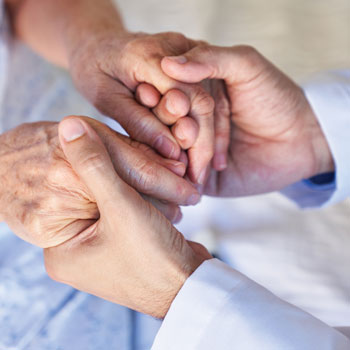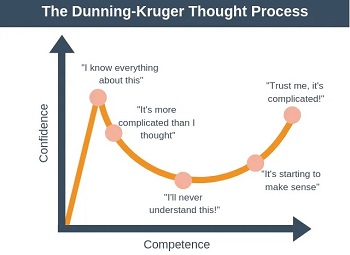Supporting grieving patients after a loss
There are ways to talk to patients after the death of a loved one, recognize tips for diagnosing and managing prolonged grief disorder, and access grief counselors for referral.
Internal medicine physicians can take care of many problems, but there's no fix for when a patient's loved one has died.
“I think one of the things that we as physicians really want to do is we try to fix things. That's in our nature. But you can't fix grief or bereavement,” said Amy R. MacKenzie, MD, FACP, an associate professor of medical oncology at Thomas Jefferson University in Philadelphia.

Physicians still have an important role in supporting patients during the grieving process and guiding them to bereavement resources, said Sue Morris, PsyD, senior psychologist and director of bereavement services at Dana-Farber/Brigham Cancer Center in Boston. But providing this type of care may not come naturally, given that it's not often taught in medical school, she noted.
In a survey study led by Dr. Morris, most primary care physicians reported that they do not routinely ask their elderly patients about recent losses nor refer their bereaved patients to mental health clinicians, according to results published in March 2018 by the Journal of Clinical Psychology in Medical Settings.
“I know from even my own training in psychology that we don't really learn a lot about grief and loss in clinical training, and it's kind of surprising to me, [given] that most of us are going to experience it, probably many times over in our lives,” she said.
Such experience may even lead physicians to better know the appropriate words to say and actions to take when a patient is grieving. The survey study also found that primary care physicians who had experienced their own losses were significantly more comfortable speaking with patients about recent losses.
“If they haven't had that much of their own experience with grief and loss, it can feel uncomfortable, and often when things are uncomfortable, we avoid them. … Learning to have a conversation and asking questions or offering condolences, for example, is a skill, just like learning how to give a needle,” Dr. Morris said. “You just have to learn the skill.”
Experts explained how to talk to patients after a loss, offered tips for diagnosing and managing prolonged grief disorder, and highlighted an underutilized source of grief counselors for referral.
Talking it out
Physicians learn about the deaths of their patients' loved ones in several ways.
In the survey study, 75% of primary care physicians reported that they found out about the recent deaths of their elderly patients' loved ones during acute medical visits with the bereaved. Sixty percent learned about the death during a visit for a routine annual physical, and 59% received a telephone call from the bereaved patient.
Only 33% of the sample indicated that they routinely ask their elderly patients about recent losses during visits. But screening older patients by asking, “Has anyone recently died in your life since I've seen you last?” can help physicians identify the earlier stages of grief and possibly prevent them from having a difficult bereavement, Dr. Morris said.
Of course, a lack of comfort or training could pose a challenge. “I think some of the barriers could be they don't know what to say, they don't know how to ask the question, they don't know what to suggest if the person says yes,” she said.
Grief—even intense grief—is a natural response to loss, said M. Katherine Shear, MD, the Marion E. Kenworthy Professor of Psychiatry at Columbia University's School of Social Work and College of Physicians and Surgeons in New York City. “It's hard to comprehend the reality that a person that you love and who was a part of your life is not going to be there anymore,” she said.
Usually, people move through grief over time, with support from friends, family, and others like a caring physician, Dr. Shear said. “The way to support someone is to understand that they are in pain and convey caring and support,” she said. “You don't want to try to reassure someone; you want to listen and be willing to share their pain and check in with that person maybe a little more frequently.”
For those who want more support, there are also community resources, such as grief support groups. Local hospices are one place to look for such programs, since many hospice bereavement programs are open to the community and are not limited to people who've been in their care, Dr. Morris noted.
“That's not something that a lot of people really know, [that] they would offer geographically based community support to other people,” she said, adding that it's hard for grieving patients to know where to find support. “That's why I think that a primary care physician could be a guide, especially if they are in communities where they know the resources.”
Visual aids can also help patients anticipate the ups and downs of the bereavement process. While grief is a normal response to the death of a loved one, its course isn't typically a straight line to improvement, said Dr. Morris, who is also an assistant professor of psychiatry at Harvard Medical School in Boston.
That's why she's always drawing waves for her patients. “Many people think that grief will be linear, that each week will get better and better and better. … The waves of grief will lessen in intensity and frequency, but they can always increase again at different times,” Dr. Morris noted. “So maybe, for example, in the lead up to the first anniversary [of the death] or if there's a birthday or Thanksgiving coming up.”
If the physician knew the patient who died, it can help to tell a story about that person to the patient who is grieving, Dr. Shear suggested. “It's very gratifying to anyone who's grieving when someone else tells them a story about that person that meant something to them or that they didn't know before,” she said.
While everyone grieves on their own time and in their own way, Dr. Morris said she lets bereaved family members know that the initial profound sadness and intense longing usually do lessen over time. “I think that gives them some hope that it's not going to stay the same as how they feel early on,” Dr. Morris said. “But also, it's not just time; it's what you do in the time that's going to help that wave.”
Physicians can continue to monitor bereaved patients as they move toward accepting the reality that their loved one is gone, Dr. Shear said. “That's a natural process that takes a little while. It works best when a griever lets themselves experience the pain and also gets respite from the pain,” she said. “Positive distractions are good for getting respite.”
Helpful actions to suggest to bereaved family members in the first months after their loss include maintaining a good routine, paying attention to self-care, exercising, interacting with other people, and returning to hobbies, Dr. Morris suggested, noting that catching up on medical appointments counts as self-care.
“I always encourage them to go and see their primary care physician, just because of how stressful grief is physically,” she said. “I mean, everyone thinks it's emotionally stressful, but I think people underestimate how physically stressful it is, especially if you've got other medical conditions that the physician can check.”
As a geriatric oncologist, Dr. MacKenzie has found that her patients who are bereaved may have more difficulty with decision making about their own health. “They're trying to deal with the grief of having lost somebody very close to them but then, at the same time, trying to manage the news that they have cancer,” she said. “They come to the office, you give them all this information, you're talking about chemo, and they shut down.”
Having goals-of-care conversations upfront can be very helpful for understanding what a patient wants, and so can asking them about the impact of their loss specifically, she said. “Somebody once said to me, ‘Come from a place of curiosity,’ and it usually works,” she said. “The open-ended questions give the patient the space to sort of talk or not talk.”
While primary care physicians are always pressed for time, they shouldn't assume these conversations will take forever, Dr. MacKenzie said. “Are there times when you have a serious or difficult conversation where it is longer than you anticipated? Yes,” she said. “But for the most part, it only takes a few extra minutes to offer that space and time, and for patients to feel heard.”
Prolonged grief disorder
Just like other medical conditions, grief can become complicated, requiring prompt diagnosis and treatment referral. An estimated 10% to 15% of bereaved people in the general population will have problems adapting to their loss, according to the Center for Prolonged Grief at Columbia School of Social Work, which Dr. Shear directs.
Physicians can use what they know about the situation to anticipate risk factors for a difficult bereavement, Dr. Morris said. These fall into two main categories: the circumstances of the death (e.g., sudden, unexpected, or traumatic death; lack of preparation for the death) and of the person who is grieving (e.g., lack of social support; history of other psychological disorders, such as depression or substance use), she said.
Severe other stresses can also occur after bereavement, such as financial problems, housing problems, food insecurity, and isolation—many of which have occurred with bereavement during the COVID-19 pandemic, Dr. Shear noted.
“Someone has to navigate a lot of change after somebody dies … especially as elderly couples often complement each other in their daily living. Often people have got a lot of finances [to take care of], or maybe an elderly person has to move when their spouse dies,” Dr. Morris said. “Think about the risk factors so you can get a sense of how isolated somebody is and how much change they have to go through.”
Formerly called complicated grief or persistent complex bereavement disorder, prolonged grief disorder was added to the DSM-5 in March 2022. Under those diagnostic criteria, pervasive intense yearning or preoccupation, plus a certain number of other symptoms, occur at least 12 months after the death of a loved one. Under ICD-11 criteria, this period is shortened to at least six months after bereavement, with no strict requirement for the number of symptoms.
In general, after at least six months, if a patient is still preoccupied with their grief and if people around them are starting to get impatient with them or worried about them, it would make sense to refer them to a licensed mental health clinician, said Dr. Shear.
A simple five-question rating scale called the Brief Grief Questionnaire can help busy physicians identify prolonged grief disorder, noted Dr. Shear, who developed the scale with Susan Essock, PhD. A score of 5 or higher is a positive screen. “People who score over 5 more than a year after the death should be referred to a licensed mental health professional,” Dr. Shear said.
If a patient meets criteria for prolonged grief disorder, evidence-based treatment is available. Dr. Shear and her research team developed a treatment for this condition and validated it in several randomized controlled trials.
The treatment, called prolonged grief disorder therapy, guides patients through seven healing milestones in 16 sessions, which are structured similarly to cognitive behavioral therapy. The milestones include understanding grief, managing emotions, seeing a promising future, strengthening relationships, narrating the story of the death, learning to live with reminders, and connecting with memories of the person who died.
Ultimately, no matter how long the grief lasts, a patient's physician can be an important part of their support system, Dr. Morris said. “A support team may include the primary care physician, it may include the family, a religious organization, or a therapist,” she said. “You've got to kind of build that support system to tackle the isolation.”




